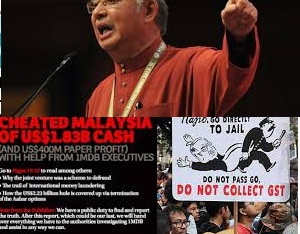
A man came before the Prophet Muhammad and asked him for some advice. The Prophet said to him, “When you decide on some action, think of its consequences. If they are good, go ahead with it, and if they are bad, refrain from it.”
The Prophet’s words show that a prospective action should be weighed up according to the outcome it is likely to have. One should think before one acts: what will be the consequences of my action? If the prospects appear good, one may carry on with what one is intending to do, otherwise one should rethink one’s course of action.
Generally, people just take matters at their face value and rush into them without thinking. A Muslim should study matters carefully from every angle before deciding on a course of action. He should particularly take note of others’ probable reaction. Are people likely to stand in his way? If so, does he have the capability to overcome the obstacles they pose? Is he in a position to surmount all the hurdles that are likely to be strewn in his path, winning through to his final goal?
He should consider what the psychological, social and political repercussions of his actions will be. Only if he is confident that his work will have beneficial consequences should he embark on it.
In the great toss-up between perception and evidence, the former generally wins. Conventional wisdom,Why do we say “law and order” rather than “order and law”? Simple. Law comes before order. Law defines the nature of order. Law is the difference between civilization and chaos. Law is evolutionary: the edicts of tribes, chiefs and dynasties lifted human societies from scattered peril to structured coexistence. The laws of democracy have vaulted us to the acme of social cohesion, for they eliminated arbitrary diktat and introduced collective will. The divine right of kings is dead; it has been reborn as the secular right of an elected Parliament.
Every good drama needs a few sub-plots whirling through the mainframe. The most captivating within our current political theatre is surely the joust that is odd that the government should have chosen law and order as its final alibi after some exhausting self-laceration in its search for a credible explanation for the escape of a criminal Najib
The only initiative worth taking is one that will yield positive results. If one embarks on a destructive course of action, it will be oneself that suffers. Therefore, one should steer clear of such actions, as any sensible person steers clear of destroying his own life.No charges will be brought against Prime Minister Najib Abdul Razak based on the investigations carried out by the Malaysian Anti-Corruption Commission
Unsurprisingly, Najib sneered at.Attorney-General who knelt before him; he could not care a damn about those funny-looking Mohamed Apandi Ali
who had dared to arrest Rosmah’s husband ‘Bail or no bail’: what was a rotten piece of paper signed in by the Malaysian Anti-Corruption Commission (MACC). worth to a lord of Wall Street? Not even the decency of silence. Najib was publicly, even proudly, contemptuous of those who did not have the courage to interrupt his freedom for a mere RM2.6b ‘There is a law Najib had twigged on to a basic truth that the law is a malleable reality for those who are “well-connected”
.Attorney-General Mohamed Apandi Ali said he has studied the investigation papers and was satisfied that there are no grounds for action.”Based on the facts and evidence as a whole, I, as the public prosecutor, am satisfied that no criminal offence has been committed by the prime minister in relation to the three investigation papers.
A nation that cannot uphold its law cannot preserve its order. When Najib was smuggled out to safety, the authority of Attorney-General Mohamed Apandi Ali abandoned the responsibility of state. Excuses, evasions and lies have shifted overREADMORE A.G MOHAMED APANDI ALI’S CAPABILITY BEING USED AS A SAFETY NET FOR NAJIB?
No comments:
Post a Comment